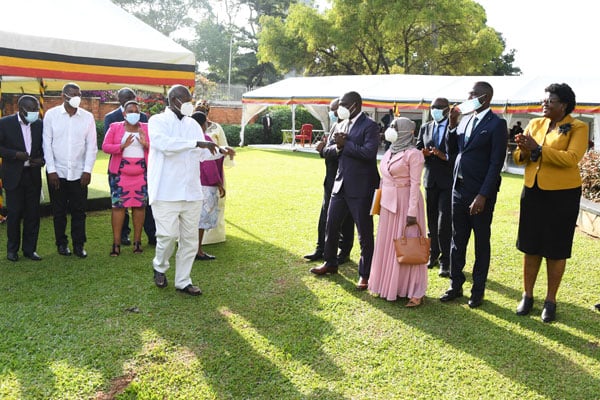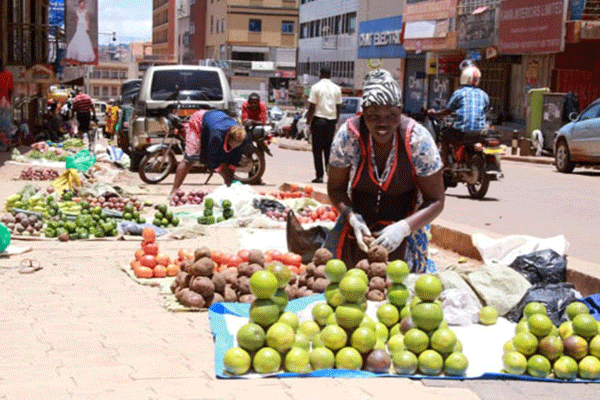Museveni wants urban poor to own markets

President Museveni meets some of the KCCA leaders at State House Nakasero on November 2, 2022. PHOTO/PPU
What you need to know:
- Kampala Capital City Authority (KCCA) banned street vending in 2015 in a bid to decongest the city and restore trade order, and subsequently acquired Usafi market in Kalitunsi-Mengo to resettle the evicted vendors.
- Kampala Lord Mayor Erias Lukwago says trade order in the city will always be a nightmare until government allocates to KCCA sufficient funds to construct markets and other common user facilities for the urban poor.
President Museveni has advised that markets in Kampala and the metropolitan areas should be owned and managed by the low-income earners instead of being taken by the rich who in turn charge high fees from the wananchi (common people).
“The rich can afford doing business on Kampala Road, Ntinda and all the other main roads. As leaders who love their country, they should think about the poor,” the President said yesterday.
He was meeting Kampala Capital City Authority (KCCA) leaders and some of the market representatives over the leadership and management of the markets at State House Nakasero.
The meeting follows the President’s directive on harmonisation of issues affecting the common people in the informal sector in Kampala and surrounding areas.
Mr Museveni also suggested to KCCA to have two government-owned markets and taxi parks in each of the Kampala divisions with an emphasis that they should be occupied and managed by the wananchi.
“The people you have been chasing off roads have been saying they have nowhere to go, so if you do not plan for them where will they go?” he wondered.
“We need to apply some logic to these things. Do these poor people have leaders in this city? Why aren’t they being helped?” Mr Museveni asked.
The President also tasked the Prime Minister, Ms Robinah Nabbanja, to coordinate all stakeholders so that the government can come up with a conclusive solution to the informal sector and market challenges. There have been challenges in the informal sector stemming from mismanagement, ownership, policy, and regulation, among others.
Ms Nabbanja thanked the President for his efforts in always fighting for the common person.
She pledged to work with all the stakeholders in finding a lasting solution to the market challenges.
The meeting was attended by the State Minister for Kampala Capital City and Metropolitan Affairs, Mr Kabuye Kyofatogabye, the Local Government minister, Mr Raphael Magezi, the KCCA executive director, Ms Dorothy Kisaka, the Kampala Resident City Commissioner, Ms Amina Lukanga, and Mr Salim Uhuru, the Kampala Central division mayor, among others.
Battles with street vendors
Kampala Capital City Authority (KCCA) banned street vending in 2015 in a bid to decongest the city and restore trade order, and subsequently acquired Usafi market in Kalitunsi-Mengo to resettle the evicted vendors.
However, vendors later abandoned the facility due to ‘unfavourable conditions’ and returned to the streets. Efforts by KCCA to evict them from the streets hit a snag, triggering protests from traders who argue that their presence blocks customers from accessing their shops. In 2017, KCCA council gazetted some roads to be used by street vendors during evening hours. However, the technical wing declined to implement the resolution on grounds that it would worsen the situation.
Kampala Lord Mayor Erias Lukwago says trade order in the city will always be a nightmare until government allocates to KCCA sufficient funds to construct markets and other common user facilities for the urban poor.




